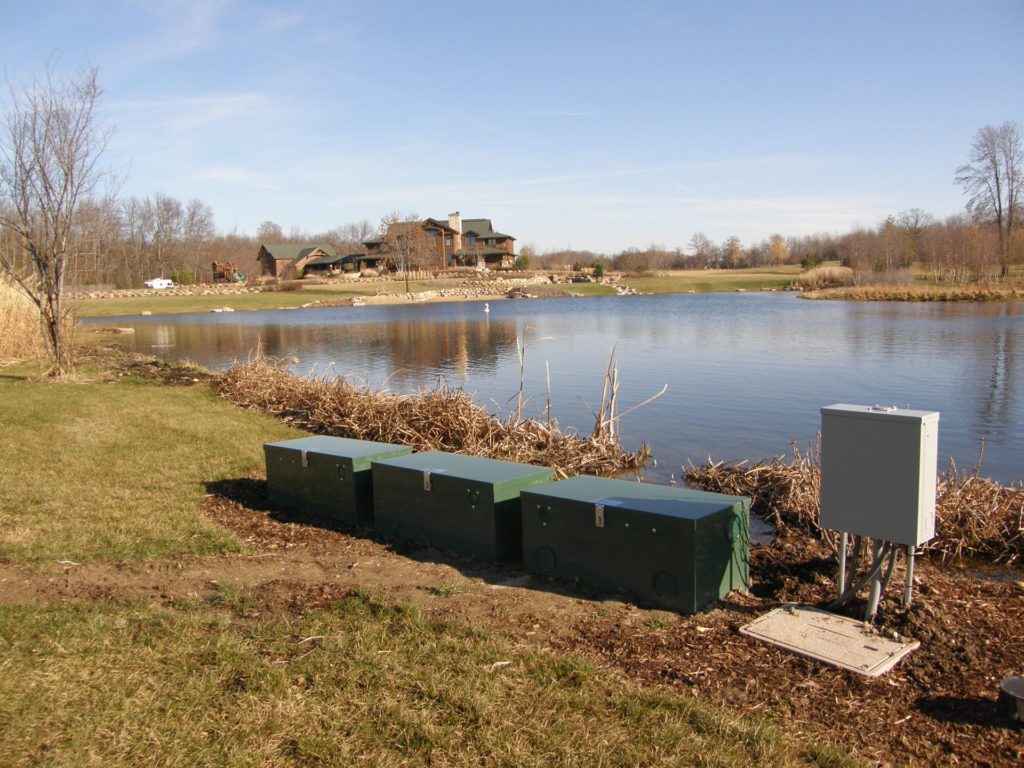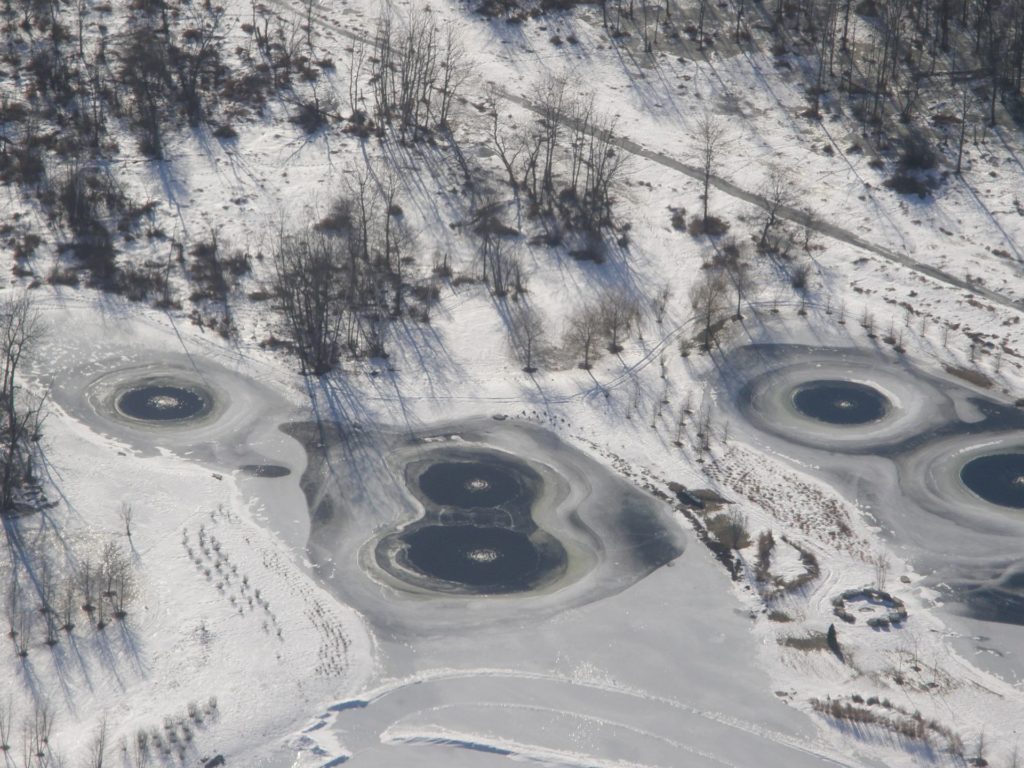By Joseph Berg
Senior Aquatic Biologist, Fisheries Specialist
Every spring, we hear many of the same questions and statements regarding ponds and fish. “Where are all of my fish?”, “I think all my fish were eaten”, “I don’t have any fish but I don’t see any floating” after ice-out, and “How come I can’t see any of the fish shallow or spawning” are just a few things I commonly hear.
First, I want to address a couple of these items. If all of your fish were eaten, you have some other serious predator problems you need to address! Also, if you cannot see fish right when the ice is off the lake or pond, try to have patience. Often times, the nights can still drop well below freezing in late winter/early spring. This means that more favorable (or warmer) temperatures may be present in deeper portions of the pond so many fish may not be observed “sunning themselves” like on warm spring days. After some time, if you do not see fish, you may have a fish kill. We also get the question “why aren’t the dead fish floating”? Although fish kills are commonly associated with many floating dead fish, they can sink to the bottom of lakes and ponds after death or before ice-out depending on a list of factors.
Loss of fish in winter or “winterkill” is common wherever water freezes. Very commonly, the phenomenon is caused by oxygen loss (that leads to basically suffocation of fish). Winterkill does not always mean all of the fish present are gone. Sometimes, only percentages of the fish will die. Many times, this will mean less tolerant fish will die. Occasionally, we do see complete kills of fish in ponds or even lakes. At that point, it is too late. However, you can do your best to prevent these losses in the future.
Do Your Best to Prevent Winterkill
Know and Manage Your Fish Populations and Ecosystem
When you stock fish, consider what fish will do the best in your lake or pond. Sometimes, a waterbody isn’t meant to hold fish if it is too small or shallow. Sometimes, ponds can warm too much, grow too many/much plants and algae, or consistently freeze out so fish cannot be supported. Factors often exist that simply do not allow for some species. Some fish are more tolerant than others of low oxygen conditions (such as many minnow species and bullheads) vs. species that need high levels of oxygen (trout). Even Bluegill and Largemouth Bass can be sensitive to lower levels of oxygen. In addition, pay attention to recommended stocking rates. You can have too many fish! Too many fish means more competition for resources (food and even oxygen). More fish create more waste and use more oxygen.

Aeration
In many cases, aeration can provide enough of an advantage for you and your waterbody to sustain fish over winter. If you question the need for aeration, contact a professional or maybe even do some testing to track your waterbody’s oxygen levels over winter. Although some species can tolerate 3 or even 2 mg/L of oxygen at times, you should have above 5 mg/L throughout the year to keep the fish in optimum ranges for growth and survival of many normal gamefish species. Aeration is often needed to achieve this or it provides reassurance that the majority of fish will survive most winters. Aeration also keeps holes in the ice open which allows harmful gas buildup to be released into the atmosphere rather than accumulate in the water.
Proper Diffuser Placement

Consult with a professional when considering an aeration system or if you already have one. In general diffusers (that sit on the lake/pond bottom and produce numerous small oxygen bubbles) should not be placed in the deepest parts of a waterbody in winter. The deepest part of a waterbody should be seen as a stable refuge where water can be kept colder in summer and warmer in winter. By mixing the water in winter, you are making the pond colder than what it would be without aeration (a pond or portions of a pond can get below 32 degrees but water movement prevents freezing). This is often called “super-cooling” the water and this can have negative or detrimental effects in itself.
Algae/Vegetation Management
Lastly, do your best to create a more suitable environment for your fish throughout the year. Algae and vegetation are natural. However, “nuisance levels” can lead to booms and busts of oxygen levels. Try to maintain more constant pond conditions and not leave extreme levels of growth heading into late summer/fall. If too much growth exists, it will die back naturally going into winter. This means that high levels of decomposition will take place by bacteria that use oxygen. This will be a significant contributing factor to oxygen loss. By maintaining a “healthy” ecosystem year-round, many occurrences of winterkill can be eliminated.